Acheson, D. 1950. “Excerpts from Acheson’s Speech to the National Press Club,” January 12, 1950. https://web.viu.ca/davies/H102/Acheson.speech1950.htm
Baker, N., and T. Switzer. 2022. “John Bolton Urges the US and Others to ‘Consider Taiwan an Independent Country.’ ”ABC RN. https://www.abc.net.au/news/2022-08-28/john-bolton-on-taiwan-china-donald-trump/101377348
Bernstein, R. 2014. China 1945: Mao’s Revolution and America’s Fateful Choice. New York: Knopf.
Blanchard, B. 2022. “U.S. Should Recognise Taiwan, Former Top Diplomat Pompeo Says.” Reuters. https://www.reuters.com/world/asia-pacific/us-should-recognise-taiwan-former-top-diplomat-pompeo-says-2022-03-04/
Burr, W. ed. 2002. “Henry Kissinger’s Secret Trip to China. The Beijing-Washington Back-Channel,” September 1970-July 1971. National Security Archive. https://nsarchive2.gwu.edu/NSAEBB/NSAEBB66/
Burr, W. ed. 2019. “Taiwan’s Bomb.” National Security Archive. https://nsarchive.gwu.edu/briefing-book/nuclear-vault/2019-01-10/taiwans-bomb
Chang, V., H. Mouritzen, and B. Gilley. (2010). “To the Finland Station: Is Taiwan Selling Out to China?” Foreign Affairs, 89(3), 128–133.
Chen, Y. 2021. 中華民國與中華人民共和國互不隸屬, 民調: 70.6%台灣民眾支持. Liberty Times. https://news.ltn.com.tw/news/politics/breakingnews/3707373
Chu, Y.H. 2023. 朱雲漢: 美國軍售地雷, 台灣必須覺醒. CommonWealth Magazine, 765期. 2023-01-11. https://www.cw.com.tw/article/5124394
Cooper, Z. 2022. “The Fourth Taiwan Strait Slip-Up.” AEIdeas, September 19, 2022. https://www.aei.org/foreign-and-defense-policy/the-fourth-taiwan-strait-slip-up/
Davies, J.P.. China Hand: An Autobiography. Philadelphia: University of Pennsylvania Press, 2012.
Document 34. 1971. Memcon, Kissinger and Zhou, 9 July1971, 4:35-11:20 PM, Top Secret / Sensitive / Exclusively Eyes Only, with cover memo by Lord, 29 July 1971. In: Burr, William. ed. 2002. Henry Kissinger’s Secret Trip to China. The Beijing-Washington Back-Channel, September 1970-July 1971. https://nsarchive2.gwu.edu/NSAEBB/NSAEBB66/ch-34.pdf
Editorial. 2016. “Editorial: No need to fear Obama’s ‘entity.’ ” Taipei Times. https://www.taipeitimes.com/News/editorials/archives/2016/12/25/2003661866
ESC. 2022a. Election Study Center, National Chengchi University. Taiwan Independence vs. Unification with the Mainland (1994/12~2022/12). https://esc.nccu.edu.tw/PageDoc/Detail?fid=7801&id=6963
ESC. 2022b. Election Study Center, National Chengchi University. Taiwanese / Chinese Identity (1992/06~2022/12). https://esc.nccu.edu.tw/PageDoc/Detail?fid=7800&id=6961
Fact Sheet. 2022. U.S. Relations With Taiwan, Bureau of East Asian and Pacific Affairs. May 28, 2022. https://www.state.gov/u-s-relations-with-taiwan/
Fazal, T.M. 2022. ‘The Return of Conquest? Why the Future of Global Order Hinges on Ukraine.” Foreign Affairs, vol. 101, no. 3, pp. 20-27.
Foreign Affairs. 2022. “Should the United States Pledge to Defend Taiwan? Foreign Affairs Asks the Experts.” https://www.foreignaffairs.com/ask-the-experts/should-united-states-pledge-defend-taiwan
Gilley, B. 2010. “Not So Dire Straits: How the Finlandization of Taiwan Benefits U.S. Security.” Foreign Affairs, 89(1), 44–60.
Glaser, C. 2011. “Will China’s Rise Lead to War? Why Realism Does Not Mean Pessimism.” Foreign Affairs, 90(2), 80–91.
Glaser, C. L. “A U.S.-China Grand Bargain? The Hard Choice between Military Competition and Accommodation.” International Security 39, no. 4 (2015): 49–90.
Grygiel, J. 2022. “National Unity in Ukraine.” First Things. https://www.firstthings.com/web-exclusives/2022/03/national-unity-in-ukraine
Guo, K. 2018. 千万不要相信美国人! 马英九忆哈佛越南同学赠言. China Times. https://www.chinatimes.com/cn/realtimenews/20180510000008-263101?chdtv
Jervis, R. 1980. “The Impact of the Korean War on the Cold War.” The Journal of Conflict Resolution, 24(4), 563–592.
Kan, K. 2018. “Friday Song: The Orphan of Asia, by the ‘idols’ idol’ Lo Ta-yu.” https://thechinaproject.com/2018/12/22/friday-song-the-orphan-of-asia/
Kane, P.V.. 2011. “To Save Our Economy, Ditch Taiwan.” The New York Times. https://www.nytimes.com/2011/11/11/opinion/to-save-our-economy-ditch-taiwan.html
Kube, C. and Gains, M. 2023. “Air Force general predicts war with China in 2025, tells officers to prep by firing ‘a clip’ at a target, and ‘aim for the head.’” NBC News. Jan 27. https://www.nbcnews.com/politics/national-security/us-air-force-general-predicts-war-china-2025-memo-rcna67967
Lee, S.T., Paal, D., and Glaser, C. 2011. “Disengaging From Taiwan: Should Washington Continue Its Alliance with Taipei?” Foreign Affairs, 90(4), 179–182.
Liberty Times. 2022. 若台灣被入侵? 馬英九稱「美國會賣武器、不會出兵」. https://news.ltn.com.tw/news/politics/breakingnews/3843173
Lin, H.T. 2016. Accidental State: Chiang Kai-shek, the United States, and the Making of Taiwan. Cambridge, Mass.: Harvard University Press.
Liu, G. 2023. 趙少康: 和侯友宜心有靈犀, 籲朱立倫勿做強國棋子. The Central News Agency. https://www.cna.com.tw/news/aipl/202301030123.aspx
Ma, Y.J. 2020. 「馬習會五週年研討會」專題演講. https://www.ma19.org/article/76
Mearsheimer, J. 2014. “Say Goodbye to Taiwan.” The National Interest. February 25. https://nationalinterest.org/article/say-goodbye-taiwan-9931
Memorandum. 1949a. Memorandum of Conversation, by the Secretary of State [Washington,] December 29, 1949. Foreign Relations of the United States 1949, The Far East: China, Volume IX. https://history.state.gov/historicaldocuments/frus1949v09/d490
Memorandum. 1949b. Memorandum by the Executive Secretary of the National Security Council (Souers) to the National Security Council. Washington, December 30, 1949. Foreign Relations of the United States 1949 The Far East and Australasia, Volume VII, Part 2. https://history.state.gov/historicaldocuments/frus1949v07p2/d387
Memorandum. 1950. Memorandum of Conversation, by the Ambassador at Large (Jessup). [Washington,] June 25. Foreign Relations of the United States 1950, Korea, Volume VII. https://history.state.gov/historicaldocuments/frus1950v07/d86
Memorandum. 1972. 183. Memorandum of Conversation. Beijing, January 3, 1972, midnight. Foreign Relations of the United States 1969–1976, Volume XVII, China 1969–1972. https://history.state.gov/historicaldocuments/frus1969-76v17/d183
Memorandum. 1976. Memorandum of Conversation. October 29, 1976: 13 pp. United States. Department of State. Bureau of East Asian and Pacific Affairs. Office of People’s Republic of China and Mongolia Affairs.
Reiter, D., and Poast, P. 2021. “The Truth About Tripwires: Why Small Force Deployments Do Not Deter Aggression.” Summer 2021. Texas National Security Review.
Richard Nixon Foundation. 2016. “Nixon’s China Calculus is Needed Today.” Sept 14. https://www.nixonfoundation.org/2016/09/what-they-want-what-we-want-what-we-both-want/
Shan, S. 2023. “Conscription unlikely to provoke China.” Taipei Times. https://www.taipeitimes.com/News/taiwan/archives/2023/01/13/2003792523
Sheng, M. 1997. Battling Western Imperialism: Mao, Stalin, and the United States. Princeton University Press.
Shen, Z. 2013. 毛泽东、斯大林与朝鲜战争[Mao, Stalin, and the Korean War], p.215. 广东人民出版社.
Situation Room. 2023. [少康戰情室]. 20230113. 【完整版上集】2023全球危機爆點台海衝突最受關注 未來兩岸終須一戰? YouTube. https://www.youtube.com/watch?v=BF17apeeXag
Slyke, L. 1967. The China White Paper: August 1949. Stanford: Stanford University Press.
Snyder, G.H. 1984. “ The Security Dilemma in Alliance Politics.” World Politics 36, no. 4 (1984): 461–95.
Su, C. 2020. 蘇起《台灣的三角習題》: 大小三角都將出現巨變, 如何讓人相信能夠「維持現狀」? https://www.thenewslens.com/article/129677/fullpage
Taiwan National Security Studies. 2022. TNSS Survey Data (2002 – 2022). https://sites.duke.edu/tnss/files/2022/12/2022TNSS.zip
Taiwan National Security Studies. 2020. TNSS Survey Data (2002 – 2022). https://sites.duke.edu/pass/files/2020/11/PP2097A1.zip
Tucker, N. B. 2005. “Taiwan Expendable? Nixon and Kissinger Go to China.” The Journal of American History, 92(1), 109–135.
Tsou, T. 1963. America’s Failure in China, 1941-50. The University of Chicago Press.
Vindman, A. 2022. “Stop Tiptoeing Around Russia: It Is Time to End Washington’s Decades of Deference to Moscow.” Foreign Affairs. https://www.foreignaffairs.com/united-states/stop-tiptoeing-around-russia
Westad, O.A. 2003. Decisive Encounters: The Chinese Civil War, 1946-1950. Stanford: Stanford University Press
Wilson Center Digital Archive. 2022. South Korean Nuclear History. https://digitalarchive.wilsoncenter.org/topics/south-korean-nuclear-history
Xinhua. 2022. “The Taiwan Question and China’s Reunification in the New Era.” The Taiwan Affairs Office of the State Council and The State Council Information Office, August 2022. https://english.news.cn/20220810/df9d3b8702154b34bbf1d451b99bf64a/c.html
Yang, K.. and Xia, Y. 2010. “Vacillating between Revolution and Détente: Mao’s Changing Psyche and Policy toward the United States, 1969–1976.” Diplomatic History. April 1. Volume 34, Issue 2, pp.395–423.

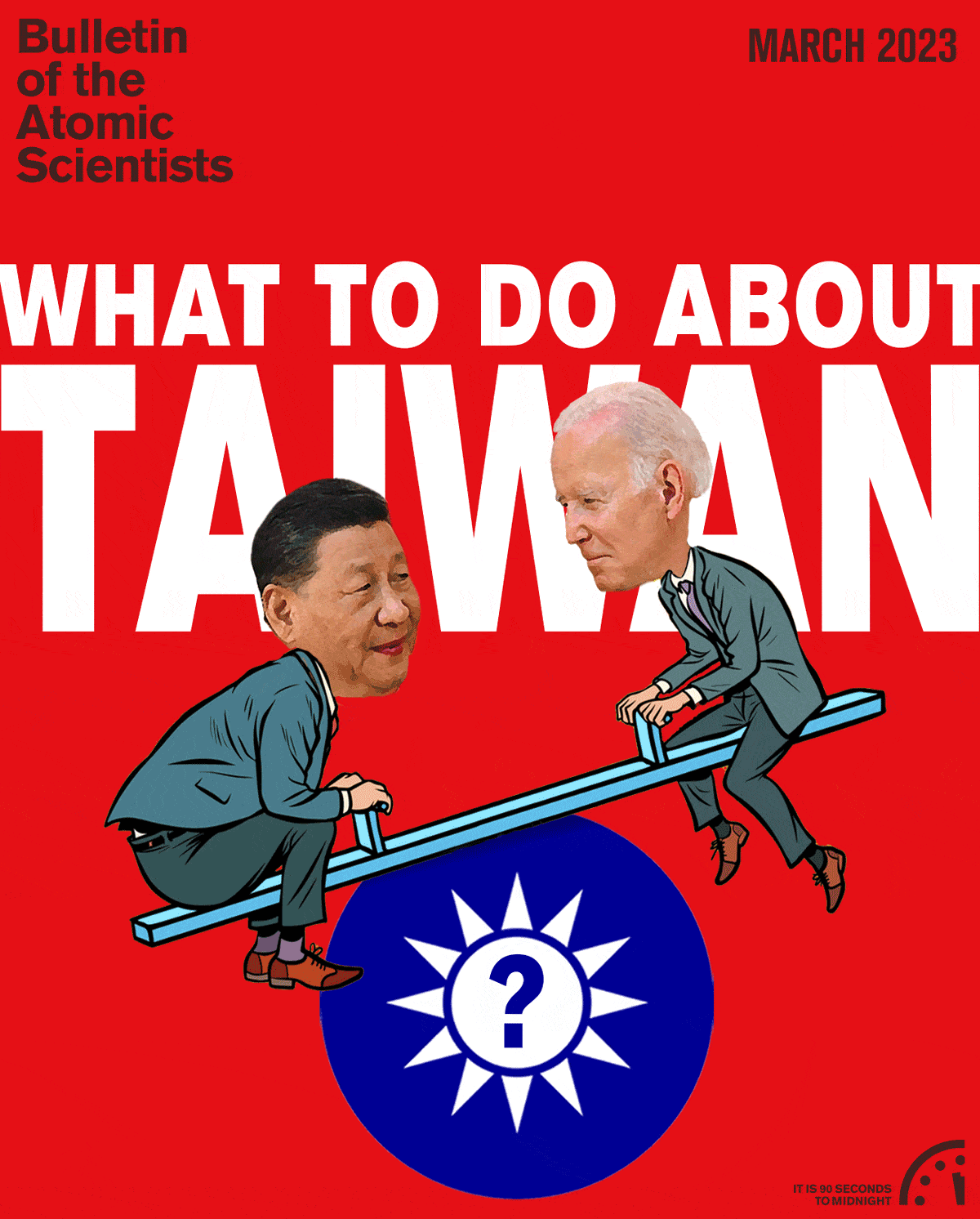
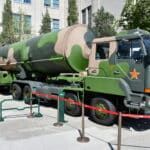
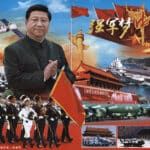
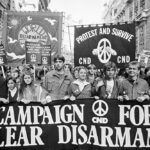

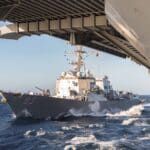



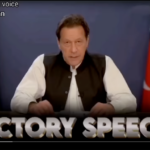


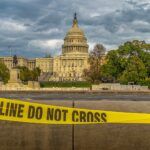








Excellent article, leaves the NYT, FT, WSJ or TE in the dust. Why can’t we have more in-depth analysis and less propaganda in what used to be serious media outlets? I don’t think the Taiwanese will allow themselves to be used for a proxy war against China, the way the Ukrainians are currently being used against Russia. They could rather reach a fig-leaf agreement with Xi along the lines of “official unification,” fly the PRC flag alongside RoC flag in Taiwan, close the very few embassies they have left, and related cosmetic measures, while both sides agree to keep all… Read more »